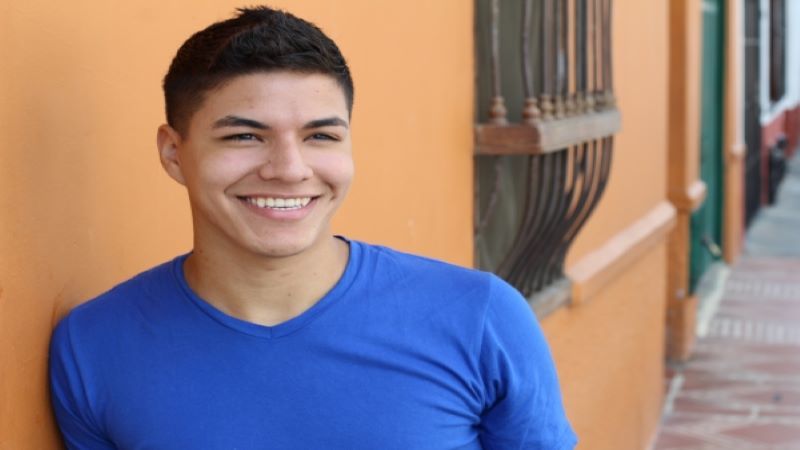
Seventeen-year-old Daniel has been able to follow his dream of a better life in the U.S. with the help of the Catholic Charities Unaccompanied Minors Program. | Photo courtesy of the Catholic Charities
The Catholic Charities Unaccompanied Minors Program helps young people such as Daniel, a 17-year-old Mexican boy apprehended by the U.S. Border Patrol.
Daniel traveled alone to the border, fleeing violence and poverty in his home country, only to face an uncertain future in the United States, wrote Erin Pelley, a case manager with the program.
“For a while, Daniel lived in federal custody in a series of youth shelters,” wrote Pelley. “He hung onto his goal of a better life in America despite the challenges that come with being an unaccompanied minor. Daniel was hundreds of miles away from his family, fighting a case in immigration court, and living in a strange, new place.”

Erin Pelley
| Photo courtesy of the Catholic Charities
She described Daniel as typical teenager “who loves playing soccer, running cross country, and going to the gym. He is an excellent student who takes the initiative to seek extra tutoring when needed.”
As his legal case progressed, the Long Term Foster Care Program at Catholic Charities accepted Daniel. His life began to change for the better.
“Daniel was able to begin living a semi-normal life in the United States,” Pelley wrote. “He entered a loving foster home, enrolled in public school and began improving his English language skills.”
He also started playing sports again and making friends.
“His foster mother taught him to cook, do laundry and other skills he would need to become an independent young adult,” Pelley said.
Daniel, who has passed all his classes despite language barriers, has even expressed interest in volunteering to help his community. He will soon be 18 and will transition from a foster home to living independently.
“Daniel is an example of how the services provided in the Catholic Charities Unaccompanied Minors Program can help youth overcome overwhelming odds to become successful members of their community,” Pelley concluded.






 Alerts Sign-up
Alerts Sign-up